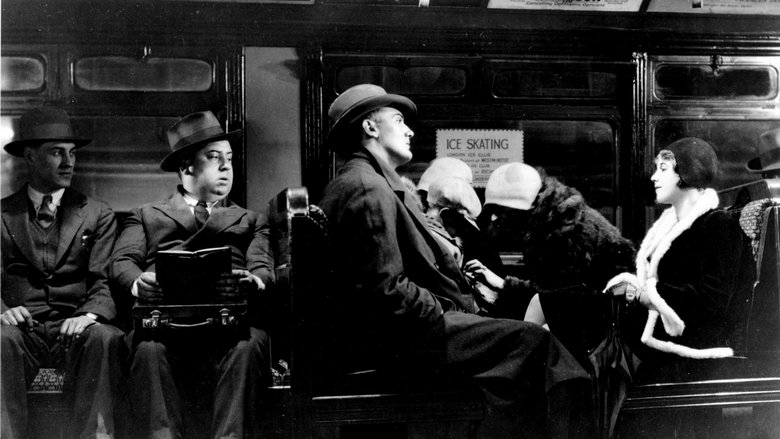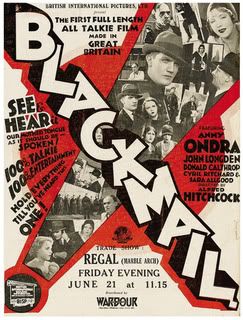← Back to Reviews

in
Day 223: December 9th, 2010
Blackmail

Silent, no more.
Alfred Hitchcock, a master of the craft, gives us a tale about a woman who kills a man with a knife in self defense. This man tried to rape her you see, so the only logical way to get him to stop was to kill him. A witness to the murder decides to blackmail (get it?) the young woman, played by Anny Ondra.
The film was made in 1929 and sync sound became possible, therefore there were really two versions of the film shot. One with sound, one without. The studio wanted the ending to have sound, mainly because of the success of The Jazz Singer. Hitchcock filmed more than just the ending with sound, which means that this film is generally received as the first British talkie.
Hitchcock used sound to his advantage, emphasizing certain key words such as knife. Different voices wereused for the actors in the scenes because some of them, Anny Ondra, had thick accents. This was parodied in the film about the transition from silent to talkies Singing in the Rain.
The film is not only suspenseful, as most Hitchcock films are, but it asks the viewer some intelligent questions. Alice, the main character, feels guilty about killing the man, but should she? He did try to rape her. I also found the use of sound to be particularly brilliant (even if it's completely amateur). Important plot points are expressed with the aid of sound and since this wasn't used beforehand, it marks quite a distinctive jump in film, for me at least.
Despite all the greatness, the film does drag in a lot of places. It's one of his more ambitious films, integrating sound, but he still hadn't mastered the craft of film making yet. If there were only a few Hitchcock films I could tell you to see, this one wouldn't be near the top of the list.
Blackmail

Silent, no more.
Alfred Hitchcock, a master of the craft, gives us a tale about a woman who kills a man with a knife in self defense. This man tried to rape her you see, so the only logical way to get him to stop was to kill him. A witness to the murder decides to blackmail (get it?) the young woman, played by Anny Ondra.
The film was made in 1929 and sync sound became possible, therefore there were really two versions of the film shot. One with sound, one without. The studio wanted the ending to have sound, mainly because of the success of The Jazz Singer. Hitchcock filmed more than just the ending with sound, which means that this film is generally received as the first British talkie.
Hitchcock used sound to his advantage, emphasizing certain key words such as knife. Different voices wereused for the actors in the scenes because some of them, Anny Ondra, had thick accents. This was parodied in the film about the transition from silent to talkies Singing in the Rain.
The film is not only suspenseful, as most Hitchcock films are, but it asks the viewer some intelligent questions. Alice, the main character, feels guilty about killing the man, but should she? He did try to rape her. I also found the use of sound to be particularly brilliant (even if it's completely amateur). Important plot points are expressed with the aid of sound and since this wasn't used beforehand, it marks quite a distinctive jump in film, for me at least.
Despite all the greatness, the film does drag in a lot of places. It's one of his more ambitious films, integrating sound, but he still hadn't mastered the craft of film making yet. If there were only a few Hitchcock films I could tell you to see, this one wouldn't be near the top of the list.
